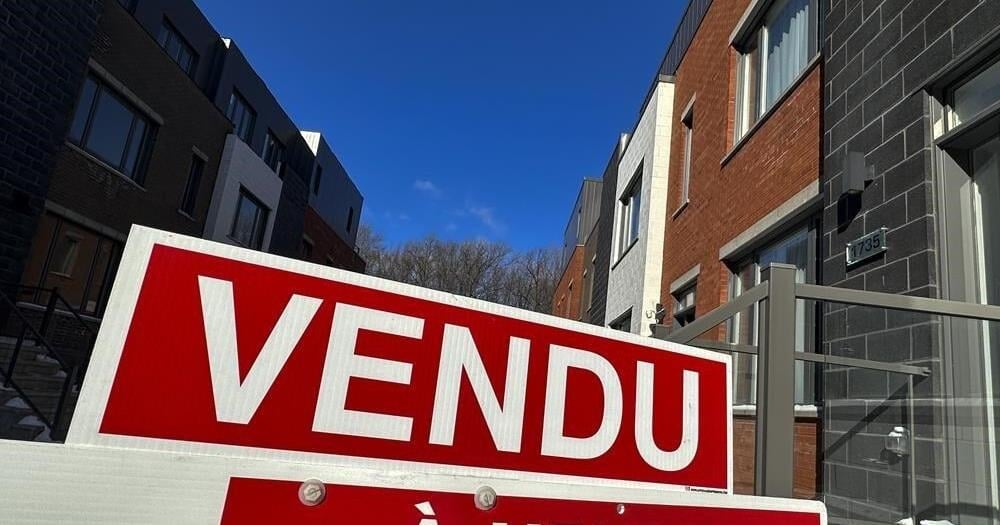This weekend will mark two months since a state of emergency was first declared in Ontario.
Millions of jobs have been lost, tens of thousands of businesses have been affected, and thousands of people have died. And throughout all of it – the lockdown measures, the daily updates, and the terrifying economic realities – it seems everyone in the real estate industry has taken a shot at summing up both the current and coming housing climate. (Yes, we were not immune either.)
So, in an attempt to help you keep up with the dizzying level of real estate decrees that have been released in the last dozen or so weeks, we’ve compiled a timeline of forecasts, prognostications, pontifications, prophecies, exaggerations, and conjectures so you can form your own opinion of who’s looking at the present in the right light, and who’s best positioned to accurately predict the future.
Forecasts
RBC – April 1
Headline: Home Sales in Canada Could Drop as Much as 30% This Year: RBC
Summary: Canada’s housing market could see a 30% decline in home resales this year, hitting a 20-year low of 350,000 units due to both physical distancing restrictions and economic uncertainty caused by the coronavirus outbreak.
Quotable: “We think the recovery will come in stages—taking buyers up to a year to regroup and rebuild confidence amid high unemployment.”
Read: The Full Article
RBC – April 6
Headline: Experts Say “Low Risk” of Housing Market Collapse: RBC Report
Summary: While RBC economist Robert Hogue expects housing price support to wear down in the weeks ahead, RBC sees a “low risk” of a market collapse – at this point.
Quotable: “We believe the extraordinary policy response from all levels of government and the Bank of Canada, as well as accommodating measures offered by financial institutions, will soften the blow.”
Read: The Full Article
RE/MAX – April 7
Headline: RE/MAX: Odds of Coronavirus-Related Housing Market Collapse are Low
Summary: “To burst, or for a real estate market collapse to take place, there would need to be a stagnant demand, with an influx of supply, leading to a sharp drop in prices.” And RE/MAX doesn’t think that’s very likely in the country’s hottest markets.
Quotable: “What is more likely to happen, as a result of this public health crisis, is more of a levelling off, rather than significant dips. The prices have been climbing at such a steep, unsustainable rate, that they were bound to be reined in at some point. However, with levels of housing inventory so low in so many of the country’s hottest markets, it’s unlikely that any price change will be jaw-dropping, or even noteworthy.”
Read: The Full Article
Royal LePage – April 14
Headline: Royal LePage Releases Canadian Market Survey Forecast
Summary: If the measures currently in place across the country are lifted before the end of the second quarter, Royal LePage is forecasting that overall prices for Canadian homes will end 2020 relatively flat. If, however, COVID-19 restrictions remain in effect throughout the summer, this could drive home prices down by 3% year-over-year to $627,900.
Quotable: “From our experience with past recessions and real estate downturns, we are not expecting significant year-over-year price changes in 2020. Home price declines occur when the market experiences sustained low sales volume while inventory builds. Currently, the inventory of homes for sale in this country is very low, matching low sales volumes as people respect government mandates to stay at home.”
Read: The Full Article
Capital Economics – April 20
Headline: Canadian Home Prices Could Drop as Much as 5% Due to Coronavirus
Summary: Despite the hot start to spring, COVID-19 disruptions are set to decrease prices in the coming months.
Quotable: “Capital Economics is “pencilling in a relatively modest fall” in house prices of 5% in the coming few months.”
Read: The Full Article
Teranet-National Bank Composite House Price Index (HPI) – April 21
Headline: Canadian Home Prices Expected to Lose Momentum
Summary: Teranet says it expects prices are going to start to cool after real estate boards reported a “clear break” in activity during the second half of March due to the coronavirus outbreak.
Quotable: “The loss of momentum is expected to be most prevalent in the metropolitan markets located in central and eastern Canada and in cities like Toronto, Hamilton, Ottawa-Gatineau, Montreal, and Halifax.”
Read: The full article.
TD – April 29
Headline: TD Now Forecasting Toronto Home Prices to Increase By 7.8% in 2020
Summary: In light of the pandemic, TD economists expect home sales in Canada will remain below their pre-COVID-19 levels for the rest of 2020, with the numbers of transactions expected to plunge in April before gradually recovering in the months to come as the country reopens and social distancing measures ease and workers return to their jobs.
Quotable: “TD said its forecasts are subject to an “extremely high degree of uncertainty.”
Read: The full article.
CIBC – May 4
Headline: CIBC Forecasting Canadian Home Prices to Drop 5-10% Relative to 2019 Levels
Summary: CIBC economists Benjamin Tal and Katherine Judge suggests that the effects of COVID-19 on Canadian home prices won’t be fully felt until 2021, but that they will drop between 5-10%.
Quotable: “Overall, as the fog clears, we expect to see average prices 5-10% lower relative to 2019 levels, with high-cost units in the high-rise segment of the market seeing the most notable price declines.”
Read: The full article.
Altus Group – May 5
Headline: Housing Sector in Canada Expected to Rebound By End of 2020: Altus Group
Summary: Peter Norman, Vice President and Chief Economist at Altus Group, acknowledges that the second and third quarters of 2020 are going to be “disaster zones” for the housing market, but believes that as safety measures begin to lift in the months to come and consumers return to spending and investing as they usually would, he expects to see sectors to start come back very quickly – including housing.
Quotable: “We shouldn’t “underestimate how fast things come back.”
Read: The full article.
DBRS Morningstar – May 8
Headline: Home Prices in Toronto Could Drop More Than 14% By 2023
Summary: Regardless of the various income support programs from the federal government and mortgage deferral options from the banks, the rise in unemployment could lead to the inevitably of more households falling behind and potentially defaulting on mortgage payments, which could, in turn, lead to home prices falling in the coming years.
Quotable: “In the moderate scenario, mortgage arrears nationwide increase to approximately 65 basis points in 2020 and then gradually decline, while home prices fall by 10% cumulatively through 2022. The adverse scenario features mortgage arrears rising to 100 basis points and a 15% correction in housing prices by 2022.”
Read: The full article.
Home Prices and Sales Updates

Zoocasa – April 1
Headline: Coronavirus Has Pushed the GTA into a Balanced Housing Market
Summary: When the sales-to-new-listings ratio (SNLR), which is described as “a measure of market competition calculated by dividing the number of sales by the number of new listings”, is between 40%-60% it indicates a balanced market, anything above and below that threshold reveals sellers’ and buyers’ markets, respectively.
Quotable: “The numbers recorded in March demonstrate there has been a noticeable shift in market conditions in a very short period of time.”
Read: The Full Article
CREA – April 15
Headline: Home Sales in the GTA Down Over 20% Month-Over-Month in March
Summary: According to CREA, home sales recorded over Canadian MLS® Systems dropped by 14.3% in March 2020 compared to February. The GTA was one of the hardest-hit markets, seeing a 20.8% decline.
Quotable: “Canadian home sales and listings were increasing heading into what was expected to be a busy spring for Canadian REALTORS®,” said Jason Stephen, president of CREA. “After Friday the 13th, everything went sideways.”
Read: The full article.
Rental Market Insights

Padmapper – April 15
Our Headline: Average Rent for Toronto 1-Bedroom Stays Highest in Canada
Summary: The average price to rent a 1-bedroom apartment in Toronto remains the highest in Canada, despite the disrupting presence of the ongoing COVID-19 pandemic.
Quotable: “With the strict social distancing measures currently in place and more residents without work as a result of the pandemic, a decline in rental market activity is to be expected.”
Read: The full article.
Urbanation – April 20
Our Headline: Toronto Renters Could See Some Relief in the Post-COVID Market
Summary: The outlook for rents will largely depend on the severity and duration of the economic downturn — which remains highly uncertain at this point — and the resulting impact the pandemic has on vacancies.
Quotable: “As rental demand declines as job losses mount, incomes are reduced, and immigration shrinks, the slowing in the GTA rental market that appeared in the last half of March will progress for at least the next few quarters given the current economic outlook. The impact on rents will be something to watch, which will also be influenced by the timing of the record number of units that were expected to complete this year.”
Read: The full article.
TRREB – May 7
Our Headline: Average Rent for Toronto 1-Bedroom Drops Nearly 3% in April Year-Over-Year
Summary: The average rent for a 1-bedroom reached $2,107, down 2.7% compared to April 2019. The average two-bedroom rent was ‘just’ $2,705, down 4.1% during the same time period year-over-year.
Quotable: “With the strict social distancing measures currently in place and more residents without work as a result of the pandemic, a decline in rental market activity is to be expected.”
Read: The full article.
Rentals.ca – May 8
Our Headline: Apartment Rents in Canada Could Drop Following Pandemic: Report
Summary: As a result of COVID-19, Canada is seeing less immigration, fewer international students, and with the border now closed, there won’t be nearly as many seasonal and part-time workers, who are all typically renters. This coupled with Rentals.ca’s prediction that some short-term rentals convert to long-term rentals, could lead to rents declining.
Quotable: “Renters who put off moving when the pandemic hit are now starting to resume their apartment search in the hopes that Canada’s lockdown will end in the coming weeks.”
Read: The full article.
Rentals.ca – May 13
Our Headline: Average Rent for 1-Bedroom Apartment in Toronto Drops 6% Year-Over-Year: Report
Summary: At the beginning of the COVID-19 lockdown, there wasn’t a noticeable decline in rental rates for condominium and rental apartments… however, that changed dramatically in April as landlords responded to this lower-demand market by adjusting their asking rents.
Quotable: “With the gradual opening of the economy, this may be the low point for rental rates in some time if tenants feel comfortable enough to move.’
Read: The full article.


































